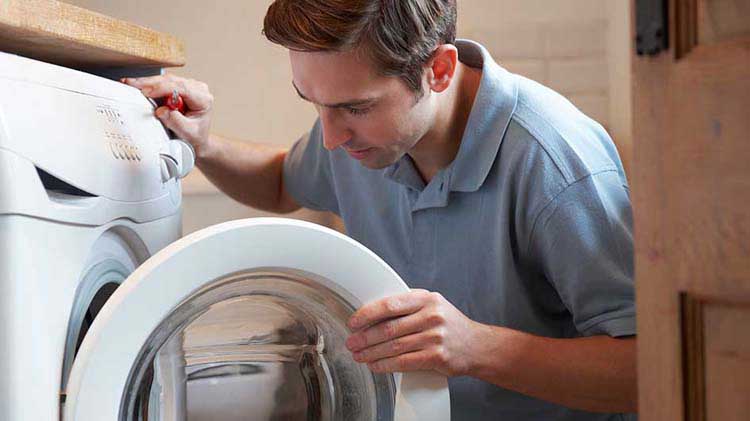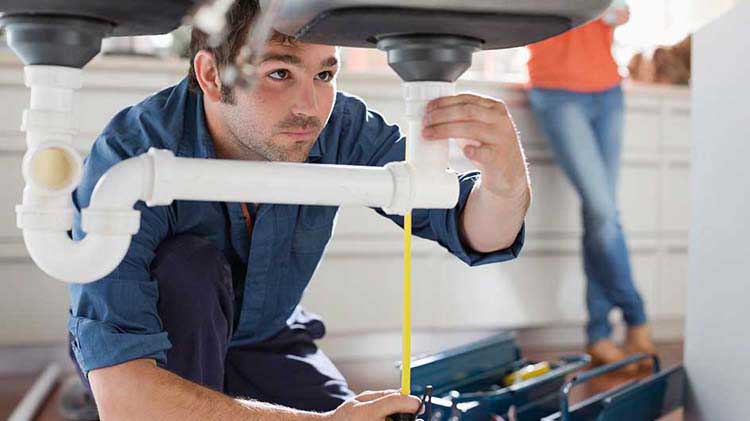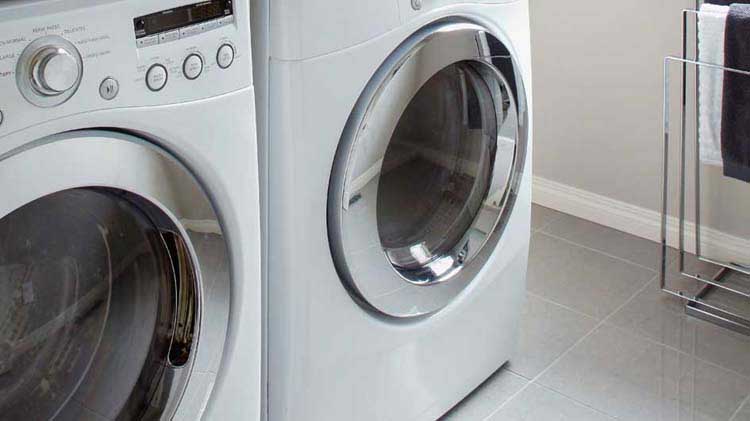10 Washing machine maintenance tips
Routine washer maintenance can help reduce breakdowns and costly water damage. Learn how to clean your washing machine and more.
Your washing machine offers your household loads of support, here are some things you can do to return the favor.
1. Use the correct type of detergent
Check that you’re using the right type of detergent for your machine. For example, high-efficiency machines perform best with low-sudsing detergent, so check for “HE” on the detergent label to confirm you’re using the right kind.
2. Don’t use too much detergent
The friction caused by clothes rubbing against each other is what helps get your clothes clean. Too much detergent can cause excess suds and cushioning between your clothes, reducing the amount of friction needed to get them clean. Not only that, but excess detergent can lead to buildup, which can put extra wear and tear on the machine. Follow the instructions for measuring detergent as this can help safeguard against using too much.
3. Don't overload the machine
All washing machines have a maximum capacity for what they’re able to hold. You risk damaging the machine if you put in more than it can handle. Try not to stuff the machine too full of clothes. And for things like bulky blankets and comforters, consider taking those to a laundromat where they have high-capacity machines specifically made to handle bulkier items.
4. Remember to clean out the lint filter
Remember to remove the lint from your washer to help keep it running efficiently. Depending on the type of machine you have, the lint collector may likely be in the agitator tube (the center column of most machines) or near the top of the washtub.
5. Leave the machine open between loads to help prevent odors and mildew
Leave the washer lid or door open between loads to help dry out the unit and keep it smelling fresh. On front-loading washers, wipe down the rubber seal around the door after doing your laundry.
6. Wash your washing machine
It may sound silly, but believe it or not, your washing machine needs to be washed to get rid of soap residue and buildup. One way to help make sure your washing machine stays clean is by running a washing machine cleaner through it every month or so. Some DIY recommendations may suggest using vinegar as a cleaner, but consider using a cleaner that’s specifically made for washing machines since vinegar can actually cause damage to rubber seals and hoses, which could potentially lead to leaks.
7. Replace damaged water hoses
Damaged water hoses can lead to costly damage to your home. Check the hoses regularly for bulging, cracking, fraying, and leaks around the ends. Replace damaged hoses whenever a problem is found or every three to five years as part of a proactive maintenance program.
8. Give the machine some space
Just like you, your washing machine needs some space. Try to give it at least four inches between itself and the wall to help prevent hoses from kinking.
9. Check that the machine is level and balanced
A washing machine that's off kilter can vibrate, rock or walk across the floor during the spin cycle, causing potential damage to both the floor and the machine. Balance the washer by turning each leg clockwise to lower it or counterclockwise to raise it.
10. Place a drip pan under the machine to help prevent water damage
Consider putting a drip pan (sometimes called a drain pan) under the machine to help contain small water leaks. This can help prevent water damage to floors and anything else underneath it, which is especially important if your washing machine is upstairs.
Following these simple washing machine maintenance tips can not only increase the effectiveness and efficiency of your machine, but can also help protect your home from costly water damage. While you’re at it, check out these clothes dryer maintenance tips, laundry room safety tips and other appliance maintenance to-dos for your home.




